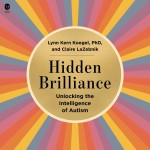Three weeks ago, I started a short series of blog posts about asking questions.
After all, we’ve got SO MUCH RESEARCH about questions, we need to keep track and make sense of it all.
To structure these posts, I’ve been focusing on these three topics:
When to ask a particular kind of question?
Who benefits most immediately from doing so?
What do we do with the answers?
So, for questions that we ask BEFORE learning starts (“before” is the “when”):
Teachers check our students’ prior knowledge for our own benefit; now we know how best to plan an upcoming unit.
and
We ask “prequestions” for students’ benefit; it turns out that — even though students don’t know the answers to prequestions — they benefit from trying to answer them.
So: here’s the next “when”…
DURING Class
We’ve explored the questions to ask BEFORE students start learning (prior knowledge, “prequestions”).
What about DURING the learning process?
Here again, I think we’ve got two essential categories. Importantly, we should plan and think about these questions differently.
First: checking for understanding.
Of course, we want our students to understand the ideas and processes that we’re discussing in class today. Alas, “understanding” happens invisibly, inside our students’ minds.
The only way to ensure that they understand: ask them questions. Their answers will make that invisible understanding visible — or, perhaps, audible.
When checking for understanding, we should keep some key principles in mind:
We should check for understanding frequently throughout a lesson. The correct number of times will vary depending on context. As a high school teacher, I rarely go more than seven or eight minutes without some kind of check.
As Doug Lemov says: “reject self report.” Our students don’t understand today’s topic well enough to know whether or not they understand — so it NEVER helps to ask students “got it?”
Be sure that everyone answers the checking-for-understanding questions. Whether we use mini-whiteboards or cold calling or quizlet, we want as broad a sample as possible of our students before we move on to the next step of the topic.
We should ask tricky questions, but not trick questions. That is: the questions should be difficult enough to ensure that students genuinely understand the topic (that’s “tricky”), but we’re not trying to fool them (“trick”).
Of course, wise thinkers have LOTS more to say about checking for understanding, but these few principles give us a strong start.
Important Distinctions
So, “who benefits” from checking for understanding? And: “what do we do with the answers”?
Roughly speaking, the teacher benefits from checking for understanding. If I C4U and discover that my students DO understand, I know:
a) that my teaching method for those several minutes worked as I had hoped, and
b) that I can continue the lesson.
If my students DON’T understand, I know:
a) it didn’t, and
b) I shouldn’t.
In other words: checking for understanding provides useful feedback to the teacher.
What should I do with the answers to these questions?
The right and wrong answers I see/hear will guide me as I decide what to do next.
If, for instance, my students answer a question about direct objects incorrectly, I might not provide the correct answer right away. But I will draw on that feedback when I think about revising my lesson plan for the next 10 minutes.
During Class, Part 2
Of course, not all in-class questions focus on checking for understanding new material. I might — in fact, I should — devote some class time to reviewing and consolidating ideas that students have already learned.
To meet this goal, I will almost certainly rely on retrieval practice.
This blog has written EXTENSIVELY about retrieval practice, so I won’t do a deep dive here. You can check out previous posts, or savor this awesome website.
The headline is: students learn more not by reviewing material but by actively trying to retrieve it.
Rather than say: “Remember, the Ideal Gas Law says that pv=nrt.”
I should say
“Okay, please try to remember the Ideal Gas Law. Don’t should out; I’ll ask you to write it on your mini-whiteboards in a moment.”
We’ve got heaps o’ research showing that the extra mental effort required by retrieval helps consolidate memories.
Notice; I’m NOT trying to see if students have an initial understanding. When I taught this concept last week, I checked for understanding. My students DID understand it.
Instead, I’m trying to consolidate the understanding they had back then.
Important Distinctions
Once again: “who benefits” from retrieval practice? And: “what do we do with the answers”?
Whereas I, the teacher, benefit from checking for understanding, MY STUDENTS benefit from retrieval practice. That mental effort helps them consolidate and transfer the ideas they retrieved.
(Of course, I do get useful feedback about the stickiness of their prior learning, but that’s not the primary goal of RP.)
What should I do with the answers? Especially wrong answers?
This question leads to a surprisingly intricate answer. The short version goes like this:
If I have time, it’s helpful to correct wrong answers to retrieval practice questions ASAP.
I should do so ESPECIALLY if the question touches on an important core idea or procedure.
But:
Students get the benefit of retrieval practice even if they get the answer wrong. As long as they come across the correct answer eventually, they’ll benefit.
This topic gets nuanced quickly, but the headline is: wrong answers aren’t tragedies in retrieval-practice world.
To Sum Up
We ask students questions BEFORE learning; we take stock of their prior knowledge, and seed future learning with prequestions.
DURING class, we frequently check for understanding to ensure that current learning is happening as we hoped.
And we ask retrieval practice questions about ideas and procedures learned before, in order to help them consolidate that learning.
If we understand the differences among the purpose for and response to these questions, we will use them more effectively.




